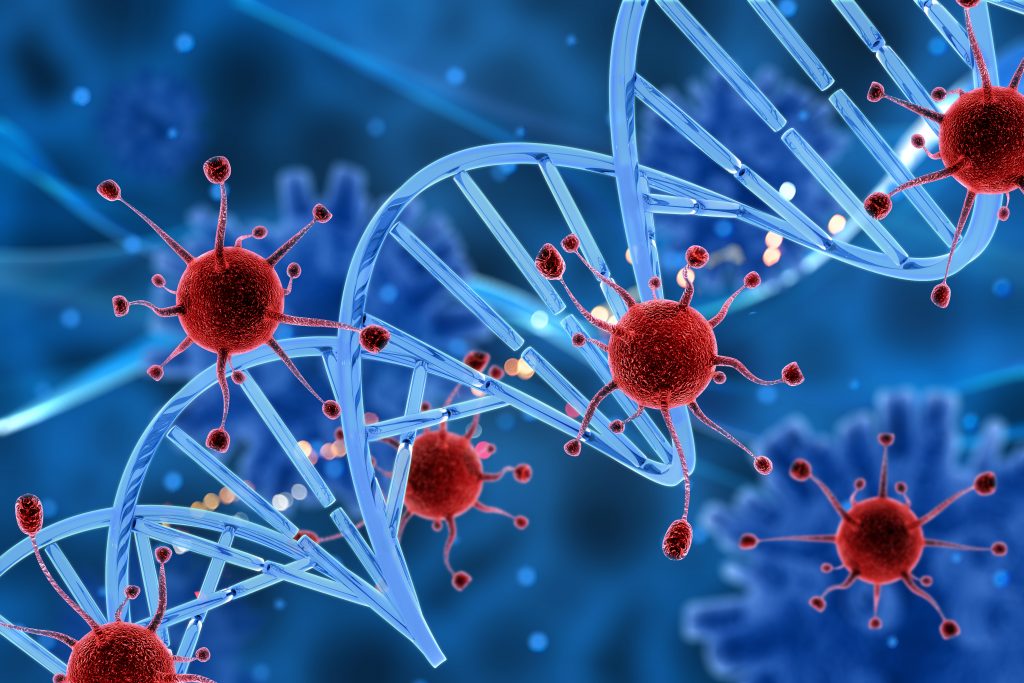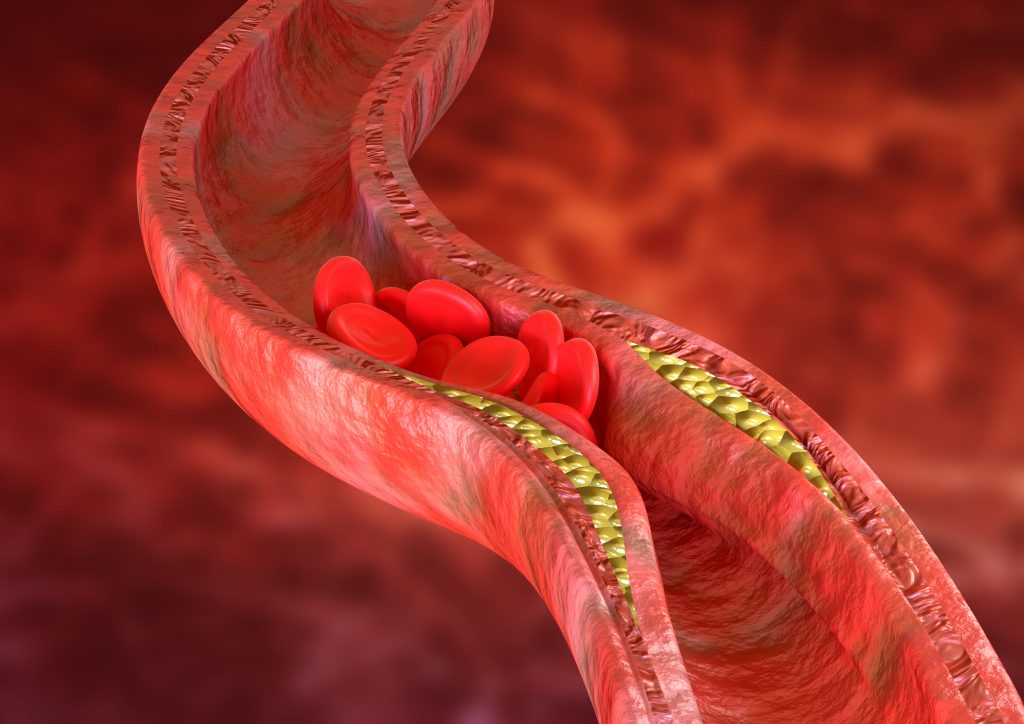Genetic Testing
What is exactly is Genetic Testing?
Genetic testing is the study of your DNA makeup throughout the generations which can lead to variants resulting in certain hereditary diseases.
What is a Genetic Disease?
A genetic disease1 is any condition caused by an abnormal variant in the genetic makeup of any individual. Genetic abnormalities can range from miniature to gargantuan – an insignificant mutation in a single base of the DNA to an immense chromosomal abnormality in the sets of a DNA sequence would cause inherited diseases.
Certain people inherit genetic disorders from their parents – however, while genes may be passed through preexisting conditions down the ancestral line, certain genetic mutations can occur either randomly or due to some natural circumstances such as the physical environment.
One can make an educated guess based on preexisting family medical history, but one doesn’t know for certain unless you take a Disease Susceptibility Genetic Test (DSGT).
Hereditary or Inherited Conditions
Hereditary diseases are something that “runs in the family” through generations, these are passed down from older to younger generations, they may also be called inherited diseases.
Inherited Conditions passed throughout generations:
1. Cancer
Cancer is a genetic disorder wherein inherited genetic mutations in the body uncontrollably grow abnormal cells anywhere in the body, there are more than 200 types of cancer.
Did you know that a single Map My Gene’s Disease Susceptibility Genetic Test (DSGT) gives you accurate test results for over 20 types of cancer cells?
2. Cardiovascular Disease (CVD)
According to the WHO (World Health Organisation), Cardiovascular Disease is now the leading cause of death worldwide2. The cardiovascular or circulatory system which contains the heart, arteries, veins, and capillaries – supplies the body with blood. Although genetics does play a big part in cardiovascular disease, obesity, smoking, poor sleep, and stress also contribute to the deterioration of the cardiovascular system.
By using genetic DNA testing, you can manage your body weight, do regular exercises, have regular sleep, quit smoking, and follow a heart-healthy diet to prevent cardiovascular disease.
3. Alzheimer’s Disease
Alzheimer’s Disease3 is a brain disorder is the most common cause of dementia in elderly people, it is caused by an abnormal buildup of proteins in the brain, which causes healthy neurons to stop functioning and to lose connections with other neurons. As Alzheimer’s disease affects the hippocampus first, the most evident symptoms of Alzheimer’s disease are memory loss and mild cognitive impairment.
The apolipoprotein E (APOE) gene and its variant APOE ε4 on chromosome 194, increases a person’s risk of developing Alzheimer’s disease. Genetic testing is used by medical professionals to diagnose inherited early-onset Alzheimer’s disease and to test people with a strong genetic hereditary history of Alzheimer’s.
If Alzheimer’s is detected early, a healthy diet, sufficient exercise, social engagement, and mentally stimulating activities have all been correlated to healthy ageing.
Medical Conditions

Medical conditions5 have several biomedical meanings including “an unhealthy state”, “a progressive condition” and a “precondition”. Medical conditions, like illnesses, affect our ability to function or enjoy life.
From the vantage point of personal health, genetics testing can detect medical conditions and other health risks earlier – this allows time for one to not only take control of their lifestyle and change it for the better – but also allow time for prompt and proactive treatment. Medical conditions detectable through DNA testing:
1. Chronic Kidney Disease
Chronic kidney disease is a long-term condition which kidneys don’t process blood the way they should, chronic kidney disease would eventually lead to kidney failure.
Research has shown that hereditary kidney conditions6 constitute substantial significant risk for the development of End Stage Renal Disease (ESRD).
By using genome-wide association studies7, identifying common susceptibility variants underlying the diseases and is suitable for study of complex diseases. Gene mapping is recommended to conduct a genome-wide association study to examine the genetic factors that affect many common and complex diseases in the genome.
2. Arthritis

There are 100 different types of arthritis – most common being Osteoarthritis (OA) and Rheumatoid Arthritis (RA), both types can be detected earlier by using DNA mapping.
Rheumatoid Arthritis is an autoimmune disorder where your immune system attacks the tissues of the body, the exact cause of these attacks is unknown, but certain genetic markers increase your risk of developing RA by five times.
If arthritis is detected earlier, you can change your lifestyle habits – losing weight, having a healthy diet, and having regular exercise like swimming will reduce joint pressure on the body.
3. Diabetes

Diabetes9 is a disorder in which the body’s insulin levels are unbalanced – genetic mutations in the body that cause diabetes involve the proteins that function improperly. This results in the body’s inability to produce enough insulin or respond normally to insulin. As insulin controls the blood sugar level, diabetics will usually have an unusually high level of insulin. This genetic vulnerability makes some people more susceptible to an environmental factor of diabetes.
Both type 1 and type 2 diabetes are inherited, however not everyone who has the group of genes will develop it. Most people who inherit the genes for type 2 diabetes have a greater chance of developing it.
If one uses genetic testing early to check for the diabetic gene, they can control their diet and have a healthy lifestyle to prevent severe diabetic implications in the future.
Health Issues

Health Issues10 – although it seems like a very broad definition – it is any health-related concern which is identified as a matter of interest, importance, or a worry to someone who might be a patient, patient’s family, or patient’s healthcare provider. If health issues are left unchecked, it might lead to devastating consequences and potentially life-threatening diseases.
Most health issues can be detected earlier through predictive genetic testing, they can be identified easily by a fuss free process. Your health information is early prevention that reduces health risks for the future.
1. Obesity
Being overweight or obese11 increases your chances of life-threatening or prolonged issues from hypertension, type 2 diabetes, coronary heart disease, stroke, sleep apnea, respiratory problems, dyslipidemia, gallbladder disease, osteoarthritis, and endometrial, breast, prostate, and colon cancers.
It is recommended to carry out genetic testing for early-onset obesity patients and their family members12 to promote early diagnosis and individual intervention. Clinical geneticists and clinicians must work together to explain the risks of obesity to patients and monitor their health and to better their lifestyle with the advice given by medical professionals
2. High Blood Pressure
High blood pressure, also known as hypertension, is a common condition in which the long-term force or pressure pushing against your artery walls is high enough that it might cause long term health issues such as heart disease and other cardiovascular issues.
Genes13 likely play some role in high blood pressure, as it is likely that people with a family history of hypertension share common environments and other potential factors that increase that risk.
To combat high blood pressure, one can improve their lifestyle choices by having a healthy diet and quit smoking.
3. High Cholesterol (Hyperlipidemia)
High Cholesterol14 is a result of fatty plaques of cholesterol in the blood vessels that tend to build up slowly over time, therefore people with high cholesterol do not usually have any symptoms until it is checked or causes serious problems like angina, strokes or even heart attacks – which require some serious medical attention.
High cholesterol has very strong genetic predisposition – this is called familial hypercholesterolemia and it even runs in families with healthy lifestyles.
Early genetic testing can help you to inform your family so that they are aware of the risks and are able to seek early treatment and prevent the development of other serious complications later.
Why Early Genetic Testing is Good for You
Genetic testing has potential long-term benefits because health information will be critical in the coming years. Test results can reduce stress and help you consider prevention, follow-up, treatment, and management of your healthcare.
Our Disease Susceptibility Genetic Test (DSGT) helps you pinpoint whether you carry any defective, mutated, or variant genes which puts you at risk of developing certain kinds of diseases.
The test report comes with risk indexes of Harvard’s Meta Analysis for all 100 diseases (including all the ones listed above). You will also receive a Personalized Health Recommendation Report that allows you to intervene early by making necessary alterations from food choice to lifestyle, therefore controlling the factors that can trigger the onset of susceptible diseases.
Understanding more about your health from genetic testing will enable you to take the first step to improving your health. Remember to speak with a medical health professional before making any major lifestyle choices. To learn more about Map My Gene’s Disease Susceptibility Genetic Test (DSGT) click on the link or use our contact form below.
Citations:
1Melissa Conrad Stöppler, M. D. (2019, October 17). 21 common GENETIC Disorders: Types, symptoms, causes & human genome. MedicineNet. https://www.medicinenet.com/genetic_disease/article.htm
2World Health Organization. (n.d.). Cardiovascular diseases (cvds). World Health Organization. https://www.who.int/news-room/fact-sheets/detail/cardiovascular-diseases-(cvds).
3,4U.S. Department of Health and Human Services. (n.d.). Alzheimer’s disease fact sheet. National Institute on Aging. https://www.nia.nih.gov/health/alzheimers-disease-fact-sheet.
5MedicineNet. (2021, March 29). Medical definition of condition. MedicineNet. https://www.medicinenet.com/condition/definition.htm.
6,7Stavljenić-Rukavina, A. (2009, April 20). 5. hereditary Kidney Disorders. EJIFCC. https://www.ncbi.nlm.nih.gov/pmc/articles/PMC4975268/.
8Macon, B. L. (2020, August 26). Arthritis: Causes, signs, and diagnosis. Healthline. https://www.healthline.com/health/arthritis#outlook.
9Diabetes Mellitus (DM) By Erika F. Brutsaert, By, Brutsaert, E. F., & Last full review/revision Sep 2020| Content last modified Sep 2020. (n.d.). Diabetes mellitus (dm) – hormonal and metabolic disorders. MSD Manual Consumer Version. https://www.msdmanuals.com/en-sg/home/hormonal-and-metabolic-disorders/diabetes-mellitus-dm-and-disorders-of-blood-sugar-metabolism/diabetes-mellitus-dm.
10Health concern. Health Concern – HL7Wiki. (n.d.). https://wiki.hl7.org/Health_Concern#Concern.
11Top 10 most common health issues. Top 10 Most Comment Health Issues – Common Senior Health Issues – Senior Health – University of Rochester Medical Center. (n.d.). https://www.urmc.rochester.edu/senior-health/common-issues/top-ten.aspx.
12Ng, M. C. Y., & Bowden, D. W. (2013). Is genetic testing of value in predicting and treating obesity? North Carolina medical journal. https://www.ncbi.nlm.nih.gov/pmc/articles/PMC4073883/.
13Centers for Disease Control and Prevention. (2020, February 24). Know your risk for high blood pressure. Centers for Disease Control and Prevention. https://www.cdc.gov/bloodpressure/risk_factors.htm.
14Francis, E., About the Writer Elaine Francis, Writer, A. the, Francis, E., & Elaine Francis is a registered nurse with 17 years’ experience in healthcare. She turned to writing to follow her passion for realistic medical communication. She loves translating medical jargon into accessible language for the people who need to underst. (2021, June 14). High cholesterol (HYPERLIPIDEMIA): Symptoms & causes. Homage. https://www.homage.sg/health/hyperlipidemia/.











